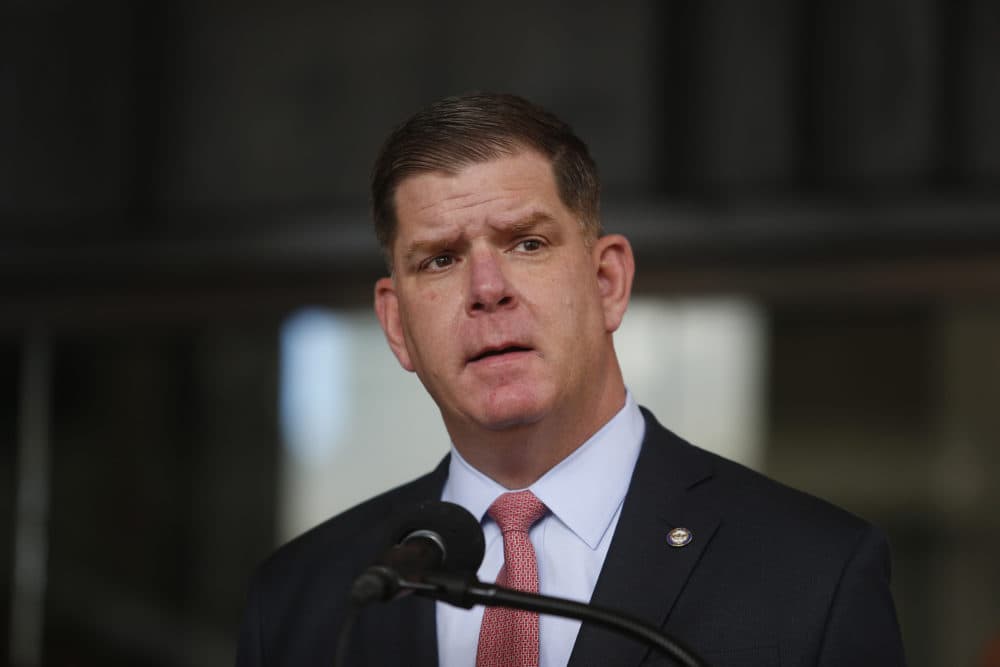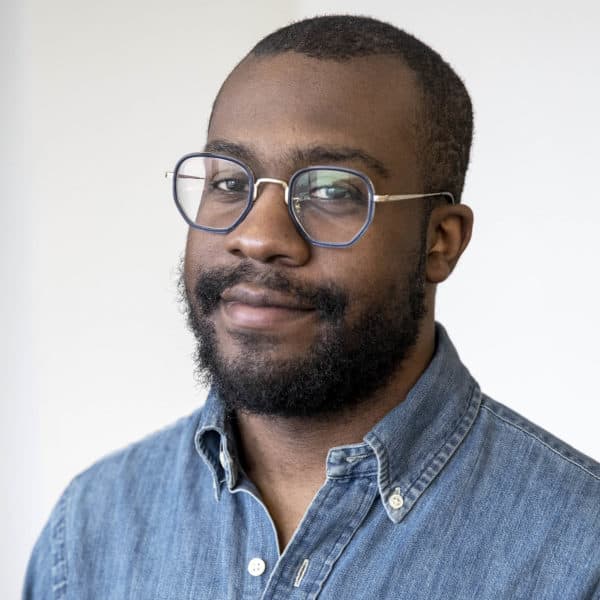Advertisement
Walsh Declares Racism 'A Public Health Crisis,' Proposes To Divert Less Than 3% Of Police Budget To Other Services

Mayor Marty Walsh on Friday declared racism a public health crisis in Boston.
To tackle the emergency, after discussion with the Boston Police Department, Walsh said he will reallocate $3 million of the department's overtime budget to public health. Walsh said the decision comes after he listened to Black people — both in the Black Lives Matter movement and in his life — who shared with him "how racism shapes lives and hurts communities."
The transfer of $3 million from the city's police department to public health accounts for less than 1% of the Boston police's annual $414 million budget. The police budget is nearly four times larger than the city's budget for its Public Health Commission.
"We're determined to accelerate our work towards systemic change," Walsh said during a media conference. "What I'm announcing today is the beginning, it's not the end. There will be more announcements and more work that we will have to do."
In early March, months before the recent wave of anti-racist and anti-police brutality protests in the city, District 5 City Councilor Ricardo Arroyo had called for Boston to declare racism a public health crisis.
The mayor also said he would propose transferring an additional $9 million from the police department's overtime budget to initiatives around housing and counseling, as well as support for businesses owned by women and people of color, for a total of $12 million in changes to the overtime budget.
In a tweet, Walsh said that $12 million is 20% of BPD's overtime budget; $12 million is less than 3% of the department's overall budget.
Walsh said he will also form a new task force to review, among other things, police use-of-force policies and submit a report within 60 days to the city.
In response to Walsh's announcement, Boston Police Commissioner William Gross said his officers wear "too many hats anyway" and that if the community shares responsibility, there will naturally be less of a need to pay cops overtime.
"A child doesn't want to go to school, you call the Boston police; a child's on the bus being unruly, you call the Boston police; there's an emotionally disturbed person in a home, you call the Boston police," Gross said. "How many hats do you want us to wear?"
Advertisement
Walsh also announced that the department will no longer subject officers to a scientifically unsound hair test that has been discredited in studies, and courts have ruled disproportionately affect people of color. The Massachusetts Supreme Judicial court last year ruled in favor of a Boston cadet who was bypassed by the department after taking the hair test.
Some people who have marched in Boston's streets over the past two weeks calling for justice in cases of police brutality said Walsh's move to take away money from the city's police force doesn't go far enough.
"The main reason why the protests are happening is for the demand of the prosecution of police," said Brock Satter, with Mass Action Against Police Brutality.
While he said the money being transferred from BPD to the community is "a pittance," he did say it was a step in the right direction.
"Keep it coming," he said. "They can defund all they want, but if they don't punish police for the crimes they commit, police are just going to keep committing crimes."
WBUR has requested the number of overtime hours Boston police worked during recent Black Lives Matter protests and marches that have focused on calls for more accountability of law enforcement after police killed George Floyd in Minneapolis and Breonna Taylor in Louisville.
WBUR also requested police body camera footage from recent demonstrations, but BPD denied the request, citing ongoing investigations. Boston cops working overtime are not required to wear body cams, though the department and the mayor said that requirement would change at an unspecified future date.
Gov. Charlie Baker and U.S. Secretary of Health and Human Services Alex Azar were asked about Boston's declaration at a press conference Friday at Beth Israel Deaconess Medical Center. Azar called racism "a critical issue for our country," and pointed to America's "tremendous health care disparities" along with efforts the Trump administration has pursued to address them. But he did not comment on the public health crisis designation specifically.
Baker also did not comment directly on Walsh's declaration, but said communities of color have been disadvantaged across a wide spectrum of areas including criminal justice, housing, health care and education.
"And we've done things to deal with these in many cases. And we're going to continue to do things to deal with these. But these issues are real," Baker said.
Baker declined to say whether he would consider shifting the state police overtime budget in the same way Walsh has committed to doing in Boston.
"I can't speak to the state police budget piece," Baker said. "I'm not a big believer, at the end of the day, that the right way to solve a number of problems is to so-called 'defund the police.' I do believe in more accountability and transparency. And … we'll be filing legislation on that next week that we’ve been working with the Black and Latino Caucus on for quite a while."
With additional reporting from WBUR's Ally Jarmanning, Jack Mitchell and Lisa Creamer
